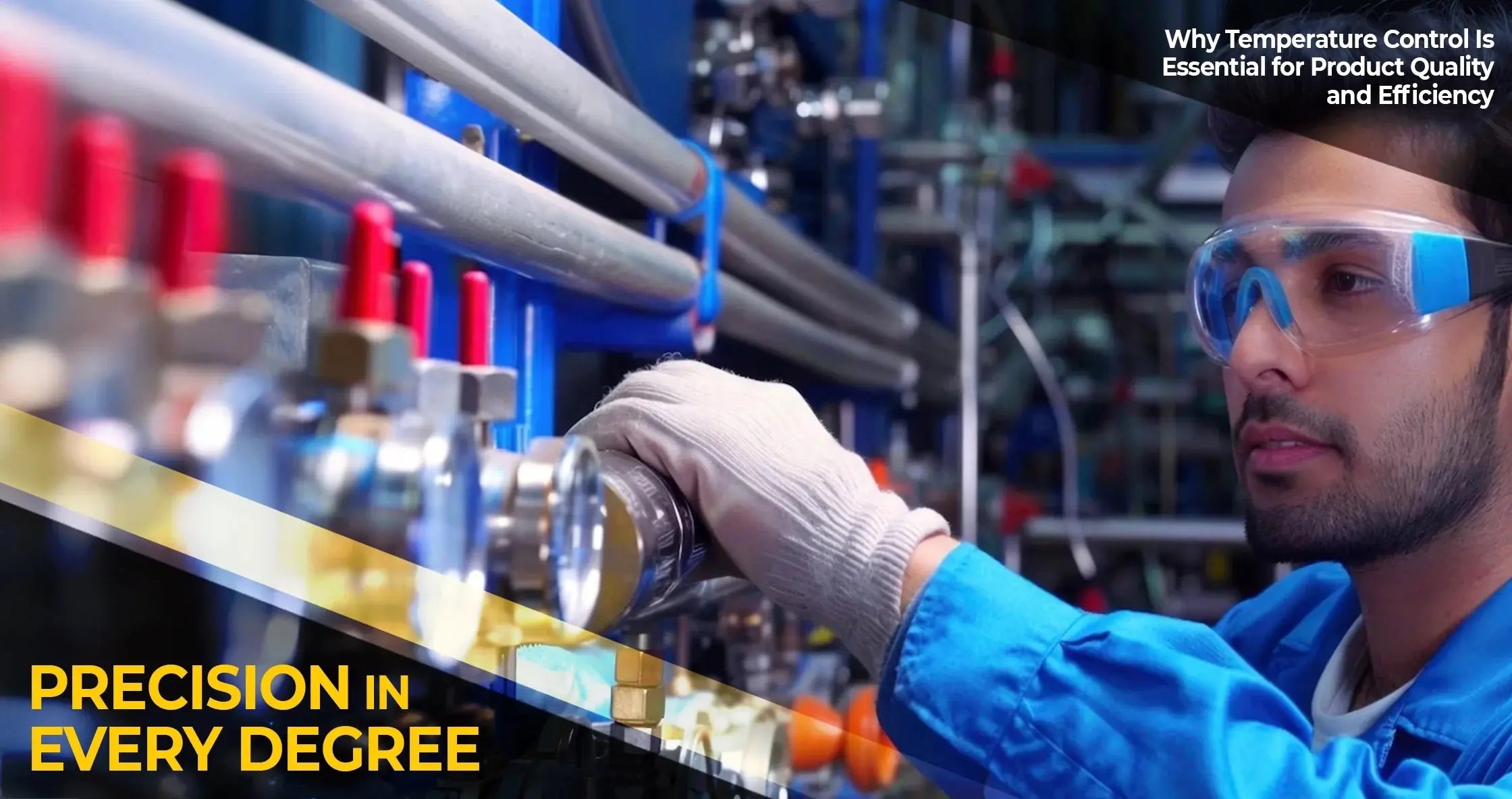Effective temperature control technology is essential for maintaining quality assurance in production across various industries. Whether in food processing, pharmaceuticals, or automotive manufacturing, precise temperature regulation ensures that products meet consistent quality standards. This article explores the pivotal role of temperature control technology in ensuring quality and operational efficiency.
The Basics of Temperature Control Technology
Understanding Temperature Control Systems
Temperature control systems are designed to maintain a specific temperature within desired limits. They monitor the actual temperature and make necessary adjustments to ensure it remains within the set parameters. These systems are crucial in several industrial applications, from food safety to chemical production.
At the core of temperature control technology are industrial temperature controllers, which are instruments that regulate temperatures based on readings from sensors. For instance, an RKC Temperature Controller C100 efficiently manages varying temperature conditions in production environments, ensuring that the desired temperature is reached and maintained.
How Temperature Control Enhances Quality Assurance
Maintaining precise temperatures is crucial in ensuring that products consistently meet outlined specifications. In processes such as pasteurization or chemical synthesis, even minor temperature deviations can lead to defects or compromised quality. Temperature control systems provide real-time data and automatic adjustments, allowing manufacturers to sustain the optimal conditions necessary for quality assurance.
For example, in the food industry, effective temperature management is necessary to prevent spoilage and ensure product safety. Implementing robust temperature control systems can help enhance the overall quality of the output and sustain consumer trust.
Industries Relying on Temperature Control Technology
Food and Beverage Industry
The food industry heavily relies on temperature control technology to maintain safety and quality throughout the production process. Keeping temperatures within specified ranges is vital, especially during processes like pasteurization, fermentation, and storage. Equipment such as RKC Temperature Controller FK06-MN-4-NN-NN/Y provides reliable regulation, ensuring that products are not only safe for consumption but also of high quality.
Effective temperature control helps prevent the growth of pathogens in food products, significantly reducing the risk of foodborne illnesses. By automating and optimizing temperature management, industry players can achieve consistent product quality and comply with safety regulations.
Pharmaceutical Manufacturing
In the pharmaceutical sector, maintaining precise temperature control is critical for the efficacy of drugs. Temperature fluctuations can compromise the stability of compounds, leading to ineffective products. Healthcare facilities and manufacturers benefit greatly from advanced temperature controller technology, such as the RKC Temperature Controller FK06-8*-AB-NN/A/Y, which ensures the required environmental conditions are upheld throughout production and storage.
Furthermore, stringent regulations in the pharmaceutical industry necessitate that temperature conditions be consistently monitored, making accurate temperature control systems indispensable for compliance and quality assurance.

Benefits of Implementing Temperature Control Systems
Enhanced Product Consistency
One of the significant benefits of employing temperature control technology in production is enhanced product consistency. By ensuring that manufacturing processes occur under controlled temperatures, industries can mitigate variations in product quality.
- Consistent manufacturing processes lead to fewer defects.
- Higher yields are attainable due to reduced waste during production.
Temperature control technology allows manufacturers to produce products that meet quality standards, thereby boosting brand reputation and customer satisfaction.
Operational Efficiency
Temperature control systems not only help in maintaining product quality but also contribute to overall operational efficiency. By minimizing energy consumption through efficient temperature management, companies can lower their operational costs significantly.
Additionally, advanced technologies provide insights into temperature trends and patterns, enabling proactive maintenance and reducing the likelihood of equipment failures. Efficient systems result in fewer downtime occurrences, leading to better productivity.
Challenges in Temperature Control
Technological Limitations
While temperature control technology offers numerous advantages, it is not without challenges. One significant limitation is the accuracy of sensors used in these systems. Inconsistent readings can affect overall performance, leading to quality issues.
Moreover, integrating temperature control systems within existing infrastructure can be complex and require substantial investment, posing a challenge for smaller manufacturers striving for effective implementation.
Environmental Factors
External environmental factors can also disrupt temperature control efforts. Variations in the ambient environment can affect internal temperature stability, necessitating robust systems that can adapt to fluctuating conditions.
To overcome these hurdles, manufacturers must invest in high-quality temperature control technologies that can provide both reliability and adaptability to changing conditions.
Conclusion
Temperature control technology is vital for quality assurance in various industries, including food, pharmaceuticals, and manufacturing. By leveraging advanced temperature controllers and maintaining optimal environmental conditions, businesses can enhance product quality, increase operational efficiency, and comply with safety regulations. Despite the challenges, investing in precise temperature control systems is crucial for any production facility seeking to improve its processes and product consistency.
FAQs
Why is temperature control important in manufacturing?
Temperature control is essential in manufacturing because it ensures consistent product quality, enhances operational efficiency, and helps comply with safety and regulatory standards.
What types of industries benefit from temperature control systems?
Industries such as food and beverage, pharmaceuticals, chemical manufacturing, and automotive significantly benefit from implementing effective temperature control systems to manage their processes.
How do temperature controllers improve energy efficiency?
Temperature controllers monitor and adjust heating and cooling processes, optimizing energy use and reducing unnecessary energy consumption, leading to cost savings for manufacturers.


